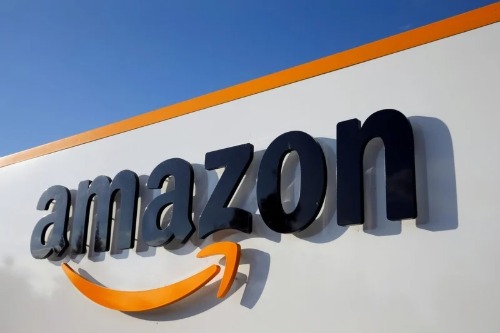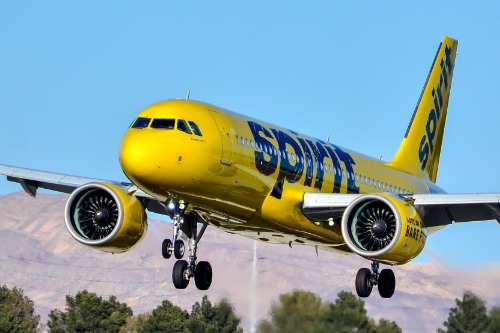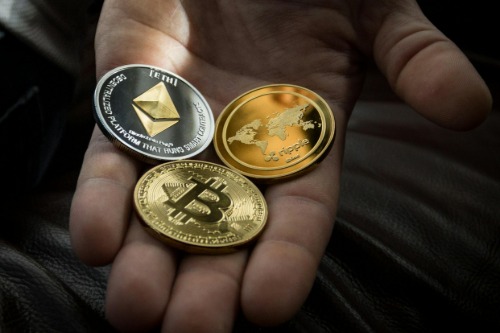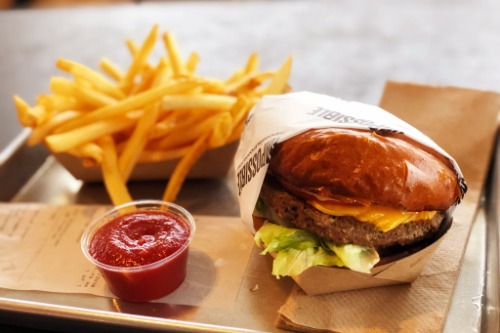1. Starbucks

Starbucks has long positioned itself as a progressive brand, but recent labor disputes have changed that perception, according to Noam Scheiber from The New York Times. The coffee giant has been accused of union-busting, firing pro-union employees, and dragging out contract negotiations with unionized workers. This has led many labor-conscious consumers to take their coffee money elsewhere, choosing local cafes or competitors like Dunkin’. Even Starbucks’ once-loyal fanbase is starting to rethink their daily latte habit.
Additionally, price hikes have left a bad taste in customers’ mouths. Many complain that their favorite drinks now cost significantly more, even as Starbucks reports massive profits. This has led some people to question whether they’re truly getting what they pay for. The combination of ethical concerns and rising prices has quietly pushed some customers away.
2. Target

Target has lost favor with some shoppers after scaling back its diversity, equity, and inclusion (DEI) initiatives, according to Jenny from Happy Muncher. The company had previously pledged billions toward supporting Black-owned businesses, but in early 2025, it announced it was cutting those commitments. This decision sparked frustration, particularly from consumers who had supported Target for its progressive values. Social media movements calling for a boycott quickly gained traction, pushing some shoppers to take their business elsewhere.
Others are still upset about last year’s controversy surrounding Target’s Pride merchandise, where backlash from both sides of the debate led to mixed messaging from the company. Some feel Target caved to political pressure, while others believe it went too far in the first place. The result? A lingering distrust that has some customers quietly choosing competitors like Walmart or independent retailers instead.
3. Tesla

Tesla’s declining popularity isn’t about EV competition—it’s about Elon Musk himself, according to Sarah Turnnidge and Alice Bouverie from the BBC. His political statements and actions, which have increasingly aligned with far-right ideologies, have alienated a significant number of once-loyal customers. In addition, Musk’s erratic behavior on social media, including amplifying conspiracy theories, has made Tesla a brand some shoppers no longer want to support. This shift has been noticeable in both consumer sentiment and slowing sales figures.
At the same time, Tesla’s workplace controversies continue to pile up. Reports of racial discrimination lawsuits, unsafe working conditions, and union-busting efforts have turned off labor-conscious consumers. Some EV buyers are now opting for alternatives from companies like Ford, Rivian, and Hyundai. While Tesla remains a leader in the EV space, its reputation has undeniably taken a hit.
4. Amazon

Amazon has been a boycott target for years, but in 2025, the reasons have evolved, according to Staci White from The Mary Sue. The latest controversy surrounds leaked internal documents showing the company rolling back DEI programs, a move that angered many progressive shoppers. Additionally, Amazon has continued to face criticism for its treatment of warehouse workers, with reports of grueling conditions and insufficient pay sparking outrage. These factors combined led to organized boycotts in March, urging consumers to pause their Prime memberships and seek alternatives.
Some shoppers have also grown weary of Amazon’s growing monopoly and its impact on small businesses. Despite offering convenience, the company has been accused of crushing competition and undercutting independent sellers. As a result, more people are making an effort to shop local or turn to platforms like Etsy for their online shopping needs. While it may not be a full-scale abandonment, many are quietly cutting back on their Amazon purchases.
5. Disney

Disney has found itself at the center of cultural and political debates, leading to quiet boycotts from multiple sides. Some conservatives have accused Disney of being “too woke” and are steering clear of its movies, theme parks, and streaming services. Meanwhile, progressives are frustrated with the company for what they see as inconsistent messaging and a lack of meaningful action on social issues. This balancing act has made Disney a target for both left-leaning and right-leaning consumers.
Adding to the problem, Disney+ price hikes and the lackluster quality of recent films have pushed some subscribers to cancel their memberships. Once considered an unstoppable entertainment giant, Disney is now facing declining box office numbers and growing competition. Even the theme parks have taken a hit, with fans complaining about overcrowding and exorbitant ticket prices. While the company still has a loyal fanbase, quiet boycotts are making an impact.
6. Shein

Fast fashion retailer Shein has long been criticized for its environmental impact and alleged labor abuses, but in 2025, more shoppers are finally taking action. As awareness grows about exploitative labor conditions in Shein’s supply chain, many consumers are opting out of the brand entirely. Additionally, Shein’s clothing has been called out for being low-quality and unsustainable, leading to a growing preference for secondhand and ethically made fashion. More Gen Z shoppers, in particular, are choosing to shop from thrift stores or independent designers instead.
Social media influencers who once heavily promoted Shein hauls are also shifting their tone. As consumers become more eco-conscious, the pressure to boycott fast fashion has increased. This has led to a noticeable decline in Shein’s dominance among younger shoppers. While some still buy from the brand, the quiet boycott is growing.
7. Netflix

Netflix’s frequent price hikes and crackdown on password sharing have left many subscribers frustrated. While the streaming giant still dominates the market, some longtime users have decided it’s simply not worth the cost anymore. Many argue that the quality of content has declined, with too many cancellations of beloved shows and a flood of mediocre originals. With other platforms offering competitive options, some are quietly cutting their Netflix subscriptions.
The rise of free ad-supported streaming services has also given consumers more choices. Platforms like Tubi and Pluto TV offer decent content without a monthly fee, making them an attractive alternative. Additionally, many Netflix originals have failed to generate the buzz they once did, further diminishing its appeal. As a result, Netflix is facing a slow but steady loss of once-loyal customers.
8. Uber and Lyft

Rideshare giants Uber and Lyft are losing favor with some consumers due to their treatment of drivers. Many drivers have complained about low wages, lack of benefits, and poor working conditions, leading to renewed calls for better labor protections. In 2025, more people are choosing alternatives like traditional taxis, local rideshare co-ops, or even public transportation to avoid supporting companies they see as exploitative. This quiet boycott has especially gained traction in cities where labor rights activists are pushing for stronger gig worker protections.
Additionally, surge pricing has become a major frustration for riders. Customers have reported exorbitant fares during peak hours, making Uber and Lyft feel less like affordable conveniences and more like last-resort options. Some users now only rely on these services when absolutely necessary, cutting back on casual rides. While these companies are still major players, a growing number of people are rethinking how often they use them.
9. Nestlé

Nestlé has been controversial for years, but in 2025, the reasons for avoiding the brand have expanded. The company’s role in environmental damage, water privatization, and child labor allegations has led many ethical consumers to phase out Nestlé products from their shopping lists. With more transparency around where food and drinks come from, consumers are making a conscious effort to avoid brands with troubling histories. Items like Nestlé water, Kit-Kat, and Nescafé are being swapped for more ethical alternatives.
At the same time, the rise of independent and sustainable brands has made boycotting Nestlé easier. Organic and fair-trade coffee brands are seeing increased support, and consumers are opting for small-batch chocolates instead of mass-produced candy bars. Even Nestlé-owned pet food brands like Purina have faced scrutiny, with some pet owners switching to boutique or homemade pet food options. While Nestlé remains a giant in the food industry, it’s clear that its reputation is taking a hit.
10. Airline Travel

Flying has become an increasingly frustrating and expensive experience, leading many travelers to cut back on air travel when possible. With frequent cancellations, longer security lines, and rising ticket prices, more people are choosing alternative transportation methods. High-profile customer service failures and hidden fees have only made matters worse, leaving many feeling nickel-and-dimed every step of the way. As a result, train travel and road trips are making a quiet comeback.
Additionally, the environmental impact of air travel is pushing some eco-conscious consumers to limit their flights. The concept of “flight shame,” which started in Europe, is gaining traction in the U.S. as well. Some are opting for virtual meetings instead of business trips, while others are prioritizing vacations that don’t require long-haul flights. While airlines will always have customers, more people are making an effort to fly less when they can.
11. Crypto and NFTs

The hype around cryptocurrency and NFTs has significantly cooled, and many former enthusiasts are stepping away. After multiple high-profile collapses and fraud scandals, trust in the crypto industry has plummeted. Once-prominent figures in the space have faced legal troubles, reinforcing skepticism among investors and casual users alike. The volatility of crypto markets has also left many feeling like the risks outweigh the rewards.
NFTs, once seen as the future of digital ownership, have particularly fallen out of favor. Many people now see them as overpriced digital collectibles with little real-world value. Even celebrities and brands that once heavily promoted NFTs have largely abandoned them. While crypto still has its die-hard supporters, the mainstream excitement has faded, and many shoppers are quietly moving on.
12. Meat Alternatives

Plant-based meat had a huge moment, but in 2025, many consumers are walking away from it. One major reason is that the novelty has worn off, and some are questioning whether these products are truly healthier than traditional meat. Critics have pointed out that many meat substitutes are highly processed and contain long ingredient lists, making them less appealing to health-conscious consumers. Additionally, taste and texture complaints have persisted, leading some to return to traditional proteins or opt for whole-food plant-based options instead.
At the same time, the price of plant-based meat remains a sticking point. With inflation hitting grocery budgets hard, many shoppers are prioritizing cheaper protein sources over expensive alternatives. While the demand for plant-based diets is still growing, the trend is shifting toward whole foods like lentils, beans, and tofu instead of processed meat substitutes. As a result, brands like Beyond Meat and Impossible Foods are seeing a slowdown in growth.


